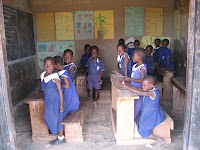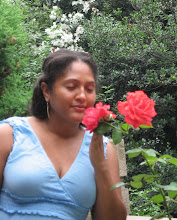 Sebo or Nyabo (Sir or Madam)! Green are the lands of the Ugandans, it is some of the must lush and fertile earth one can see on this earth. I begin this journey in Kampala which is growing and has really nice areas. While in the city I visited Makerere University and the Institute of Infectious Disease which has several research projects underway. Touring one ward, you say a waiting room filled with people awaiting to see a clinician—it was only later that it was pointed out that these were the HIV-infected. There had to be over 50 people in that one room and it hits you with the magnitude of the HIV/AIDS pandemic lest you forget.
Sebo or Nyabo (Sir or Madam)! Green are the lands of the Ugandans, it is some of the must lush and fertile earth one can see on this earth. I begin this journey in Kampala which is growing and has really nice areas. While in the city I visited Makerere University and the Institute of Infectious Disease which has several research projects underway. Touring one ward, you say a waiting room filled with people awaiting to see a clinician—it was only later that it was pointed out that these were the HIV-infected. There had to be over 50 people in that one room and it hits you with the magnitude of the HIV/AIDS pandemic lest you forget.

The people of Uganda are survivors from ancient times through the tyrannical rule of Idi Amin 20 years ago to the continued economic hardships and food shortages. The majority of the people cannot obtain what they have to pay for even in the smallest amount. If you want good education for your children you must pay. Primary school is paid by the government and this same government is only recently deciding to pay for secondary school. But for the most part, Ugandans have to pay for their education so you have their schools filled with outsiders from other African countries more than insiders. Parents have a hard time buying uniforms and often a child’s uniform will serve as the only adequate clothing the child has. The government has a subsidized lunch program in the schools that cost about 2000 shillings (a little over 1 dollar), but many families could not afford even that amount. Many get there subsistence from what they can grow or make. You do have families that have helping put other families’ children through school. There is much promise in Uganda and it is progressing however slowly—it used to take 3 hours on a road from Jinja to Iganga (40 km) because there were so many ruts and potholes and with no road rules as people tried to just find a good part of the road. It now takes only about 30-40 minutes.

Mentioning Jinja and Iganda, that is where I stayed. Jinja is my place to sleep and rest because it has adequate Internet capability. Iganda is the town (which has become quite a bustling area) where the project office is located. Electricity goes in and out and the Internet is so slow and difficult that the project staff struggles to communicate with us in the States. They say there are those that steal the copper to sell from the electrical lines constantly and the electrical companies have to continually replace it. Jinja is known as the place of the source of the Nile. You will be absolutely amazed. Many travelers come to the area to white water raft or bungee jump into the Nile (seeing that I am quite handicap in the water, this will not be me). The rapids are said to be class 5/6 (class 6 you are not even supposed to attempt). I am tempted but will pass this time. If you are interested in coming to the area, you should come soon because they are building a dam that will remove on of the falls (Bugali) and limit the white water rafting. Word of caution, a friend of mine said to beware of rafting down the Nile for several tourist are contracting schistosomiasis--so take with you praziquantel. What I did embark upon is a horseback safari that was great fun; I consider myself a budding equestrian now.;-)
One of the best features of traveling to these different sites around the globe is that you always meet people doing interesting work or just plain have an interesting life. During horseback riding, I met a group of Belgians working in different environments--CARE (?) (helping with preserving the rain forest), World Bank, and Ugandan schools and orphanages. 




